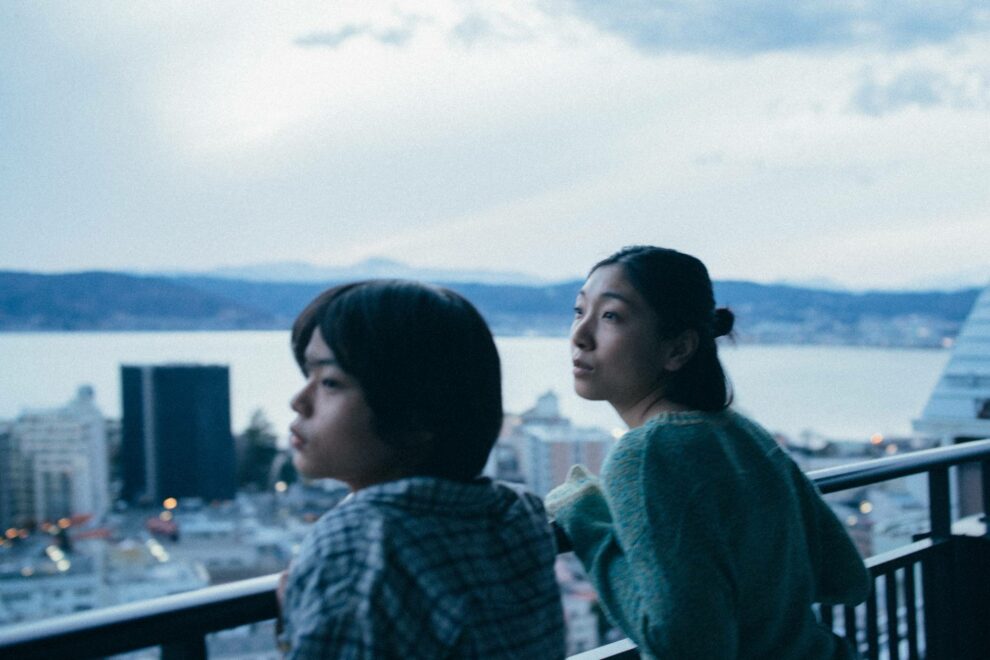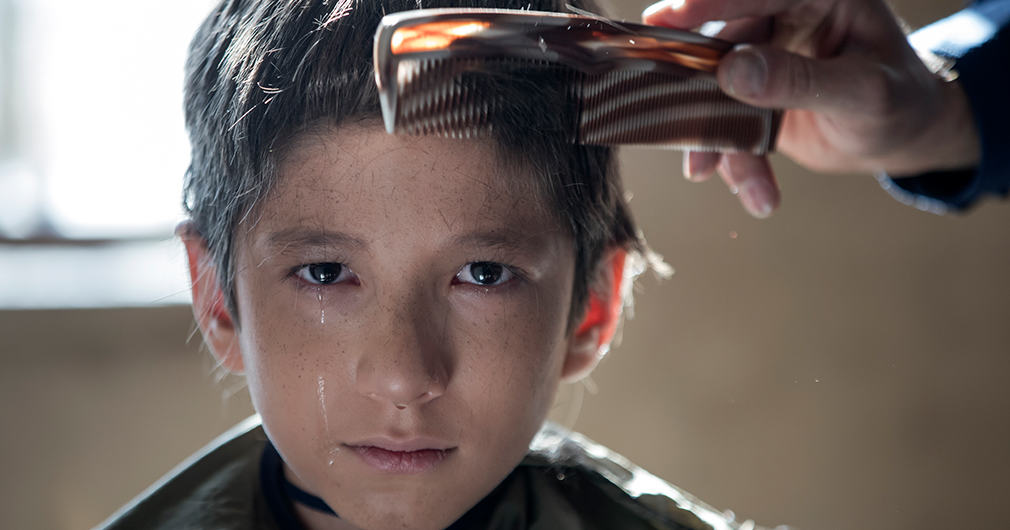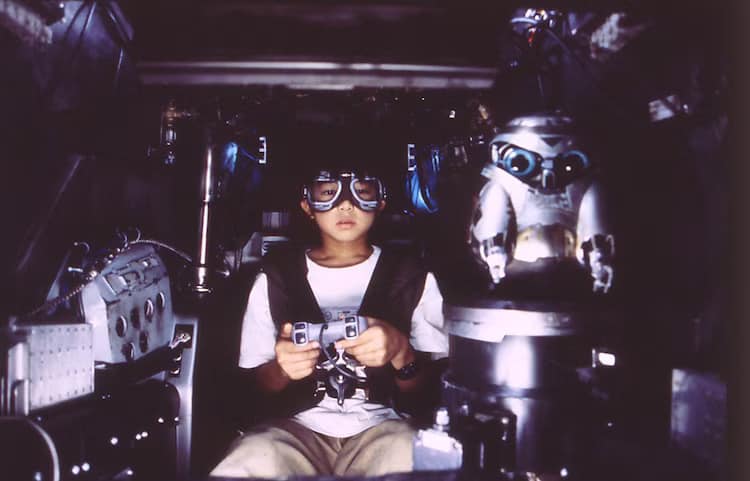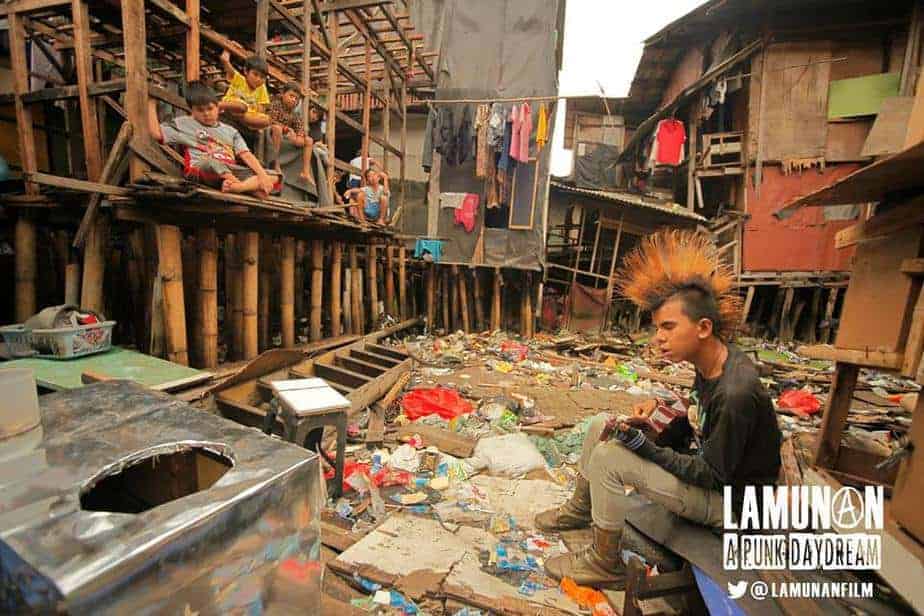by Paweł Mizgalewicz
At this point in Hirokazu Koreeda's career, it's only expected to hear that his newest work, “Monster”, is easy to recommend – but it's quite tricky to describe. The reason for that is the amount of surprises awaiting us during the film's two hour course, not at all limited to usual within-genre plot twists. Truth be told, basically everything in “Monster” is not what it initially seems – the characters, the conflicts, the events, and even the overall focus of the tale and what the movie's broad subject is. Yes, if you are a bone fide spoilerophobe, I would even advise not to check out which awards was the movie called up for at the 2023 Cannes Festival, as it might be really exciting to discover some of the themes at the time when the movie had still been swaying in so many other directions. Thankfully, the main award “Monster” received at Cannes leaves nothing to comment on, and that is the Palme d'Or for the best screenplay; it's no spoiler at all to disclose that the screenplay here is indeed breathtakingly good. We can remember the word's positive meaning, though – because after the 2018's grand winner “Shoplifters” and 2022's Korean “Broker”, Koreeda definitely keeps spoiling us.
“Monster“ is screening at New Horizons

What becomes clear pretty quickly is that this will not be a nice watch, and that after the mostly cheerful, effervescent “Broker”, Koreeda is returning to Japan with vengeance. As “Monster's” title suggests, there really is a problem in the school, a problem deeply unsettling (the school in the film, as it so often does, serving as a bite-sized representation of the society). There is some abuse, many accusations, no doubt – but the “he said-she said” edit keeps the viewer in uncertainty about the truth. One of the story's masterpiece touches is how many times it forces us to pose and reconsider the question of “who is the monster here?”.
The film's first acts soon develop into a hellish depiction of an environment so toxic that you want to spit the bile out. Resentment takes over every character – a misbehaving child, a spiteful parent, a cruel teacher, all reacting against each other with own caustic remarks, escalating the drama. Most strikingly, Koreeda displays how a collective evil can always be worse than the sum of its parts, as we see in the behavior of the school authorities towards the concerned parent. Just as little Minato's mother, we as viewers are lost at that point, looking for answers and consolation, but the school board delivers pure oppression instead, its members hiding behind each other in a slapstick manner.
Check also this interview
The group of teachers appears as a demonlike being – the deep, deep bows hiding inhuman coldness, official apologies only used to shut the discussion, and the generic “we will take action” statements at odds with, well, clearly not taking any actions. In those scenes, “Monster” might seem as brutal of an indictment of the Japanese culture as any school-suicide or children-delinquents drama of the last decades… and maybe overly dark. The film's great idea is that what you first see as an exaggerated satire turns out to be a rather well-though-out piece, and as we gather perspective of more and more characters, we realize that more or less all of the events are logical consequences of believable issues. The definition of “monster” keeps changing, and becomes something impossibly complicated – bringing some extra dark irony for the characters, but also delight to the viewer.
In a big part, this is a film focused on how hurt humans hurt other humans. Spoiler alert, there is an “all the film's numerous characters walk around with their own personal pain” climax sequence that could make P.T. Anderson's “Magnolia” blush. But there is way more here than hurting, and the range of emotions that you'd never expect during the film's first half. There are some beautiful moments, feelings and relationships to consider, and they turn out to be the part of the very same story from the very start. The use of multiple points of view and tricky chronology of the screenplay mean that, watching “Monster”, we discover the story by going deeper into it, not further on. That also means we get to know the characters in an exciting, ever-surprising way.
And so, the cast ends up as really memorable, and arguably one the best in the director's so rich career. Soya Kurokawa and Hinata Hiiragi understandably steal the poster spotlight (and the show) as two schoolboys that will break your heart, but this screenplay forces almost every cast member to deliver the hard and the soft in turns, in a way that can manipulate the viewer while still staying true to the material. Most of it works out fully, and once again Koreeda brings us an ensemble piece that will captivate cinephile audiences all over the world.
It's not the events depicted in their self, but the way of telling the story that builds “Monster's” genius – as an exciting, thrilling and touching film, but, most uniquely, also as a deeper social commentary. As we are surprised with how the contexts change, with how our own judgment is redirected by Koreeda, we realize how individuals create oppressive cultures.
Instead of only watching the bad guys do evil, in a way we get to experience it first hand – how complex, uncertain, long-winded and ambiguous it might be to truly understand another person, but how easy it is to condemn them.















